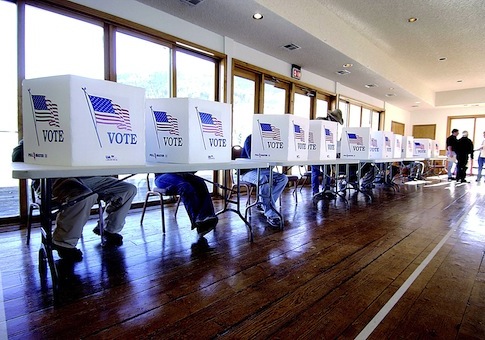More than 15 million people may not vote on Election Day over cyber security doubts, according to a new report.
Carbon Black, a cyber security firm, released a report on Thursday after surveying 700 voters. The report found that more than half of voters (56 percent) fear the election could be affected be a cyber security attack. A slightly higher percentage of voters—58 percent—believe it’s likely that electronic voting machines could be hacked on Nov. 8. More than a one-third of voters think their information is not secure (36 percent).
One out of every five voters who believe their information is not secure may potentially stay home over their cyber security fears, which could amount to more than 15 million voters, the report says.
When asked which entities they believe pose the biggest potential risk when it comes to hacking the 2016 elections, 28 percent said they believe the threat would come from inside the United States, 17 percent said Russia, and 15 percent answered the candidates themselves.
The firm noted that there have never been indications of technology in previous elections being tampered with. Recent news events dealing with the hacking of the Democratic National Committee, Democratic Congressional Campaign Committee, and election databases may have increased these fears.
"With Election Day fast-approaching, we can work to mitigate the risks inherent in the current systems," said Ben Johnson, the cofounder and chief security strategist for Carbon Black. "Beyond November, we suggest that states take a hard look at the systems they are using. We hope they go back to the drawing board with security top of mind. We, of course, highly recommend that every eligible voter still vote and encourage the use of paper (or absentee) ballots whenever possible."
The survey comes on the heels of a report from the Institute for Critical Information Technology, a cyber security think tank, which shows how easily an election could be hacked.
"To hack an election, the adversary does not need to exploit a national network of election technology," the report states. "By focusing on the machines in swing regions of swing states, an election can be hacked without drawing considerable notice. Voter machines, technically, are so riddled with vulnerabilities that even an upstart script kiddie could wreak havoc on a regional election, a hacktivist group could easily exploit a state election, an APT could effortlessly exploit a national election and any corrupt element with nothing more than the ability to describe the desired outcome could order layers of exploits on any of the multitude of deep web forums and marketplaces. Yes, hacking elections is easy."
U.S. officials announced in August that hackers had breached election system databases in Illinois and Arizona. The hacking occurred in late June, although it was not discovered until July, CNN reported.
